UM Holds In-house Staff Training on “Smart Cities and Data Governance in the Chinese Mainland”, “Chinese Literature and Culture in Modern Transition” and “Significance of the “Outline Development Plan for the Guangdong-Hong Kong-Macao Greater Bay Area” to Moderate Economic Diversification in Macao” in Quarter 3 of 2024
澳大於2024年第三季為員工舉辦「內地智慧城市與數據治理」、「中國文學與文化的現代變遷」及「《粵港澳大灣區發展規劃綱要》對澳門經濟適度多元的意義」培訓課程
Smart Cities and Data Governance in the Chinese Mainland
內地智慧城市與數據治理
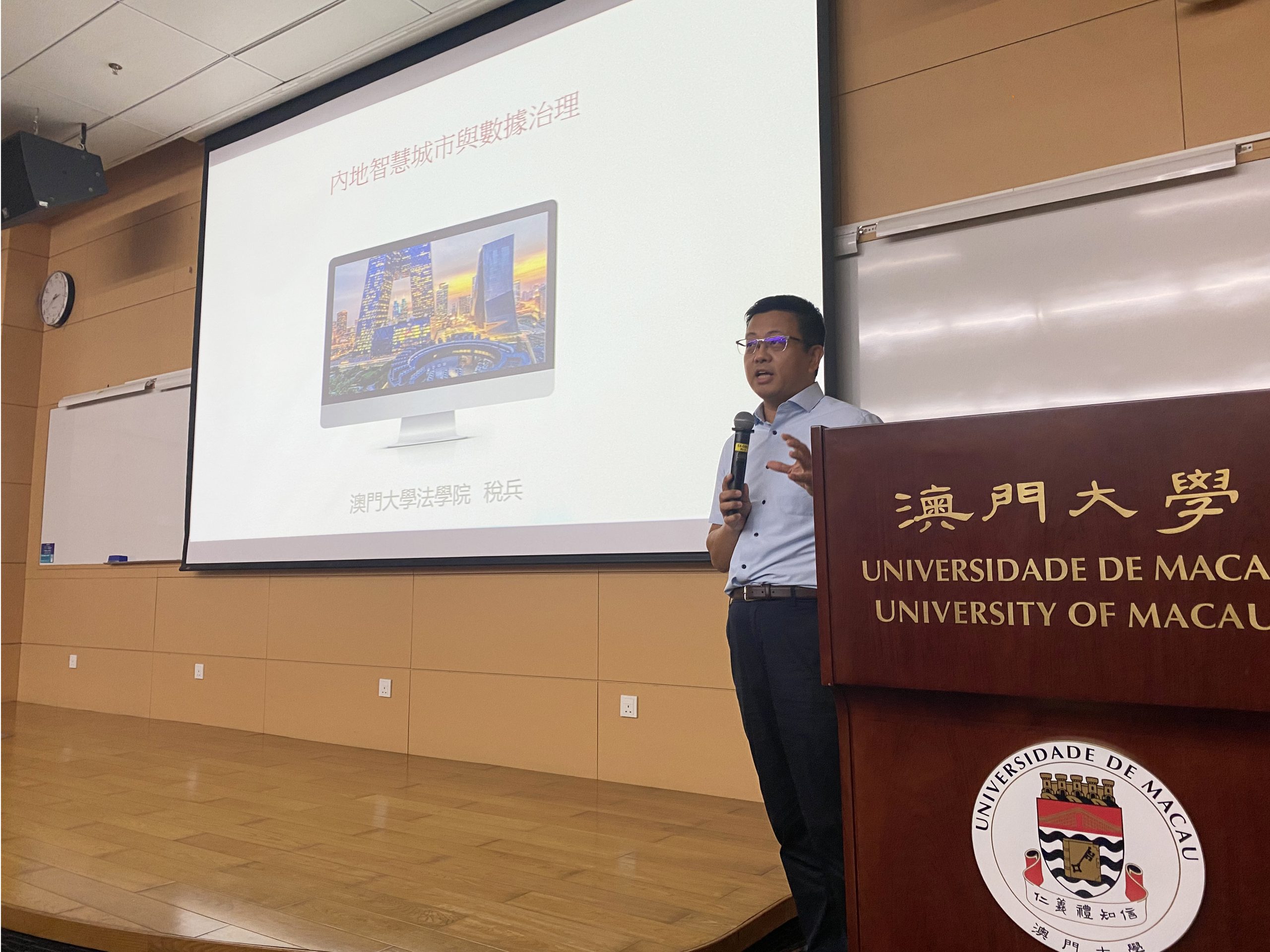
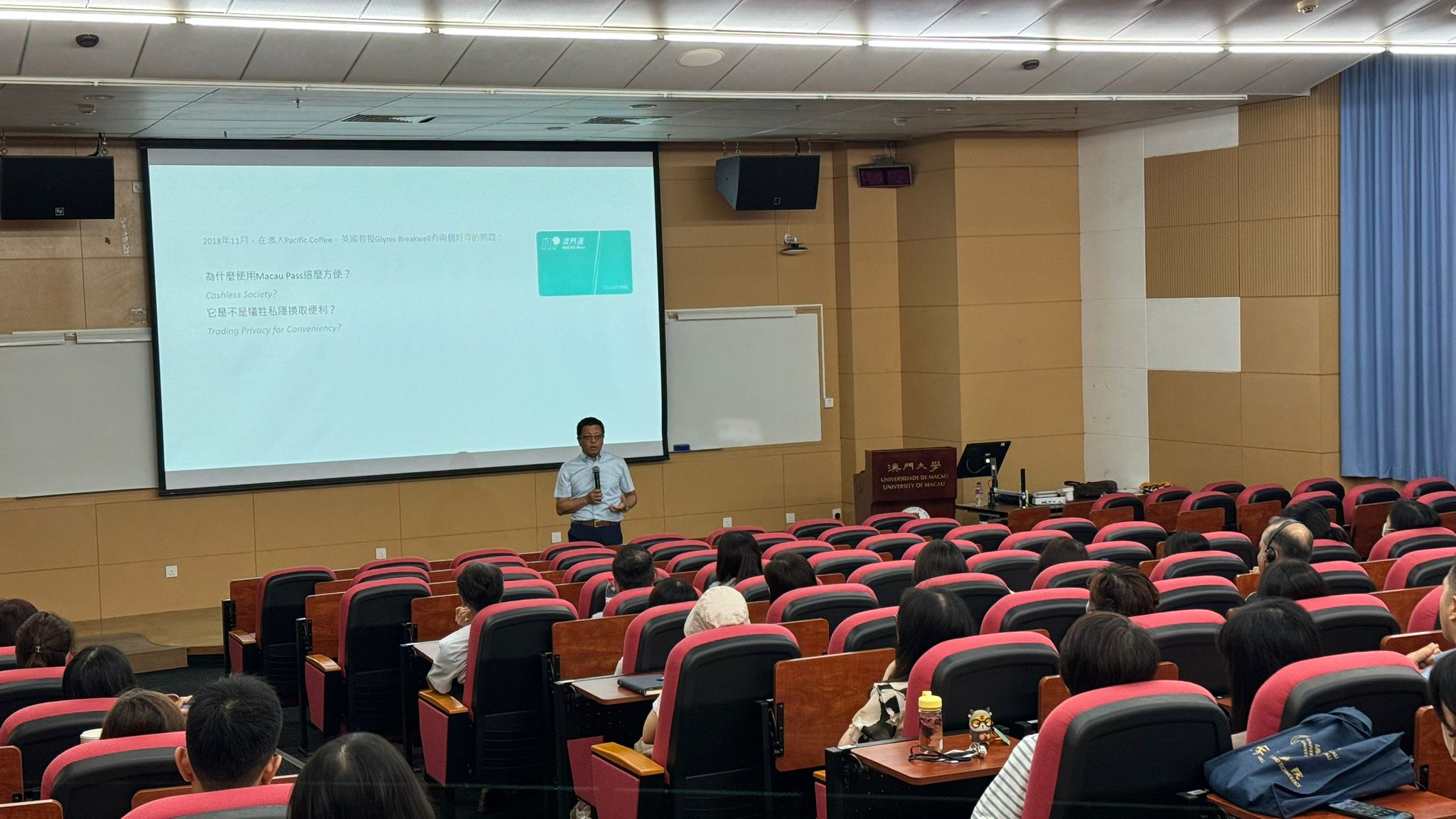
Chinese Literature and Culture in Modern Transition
中國文學與文化的現代變遷
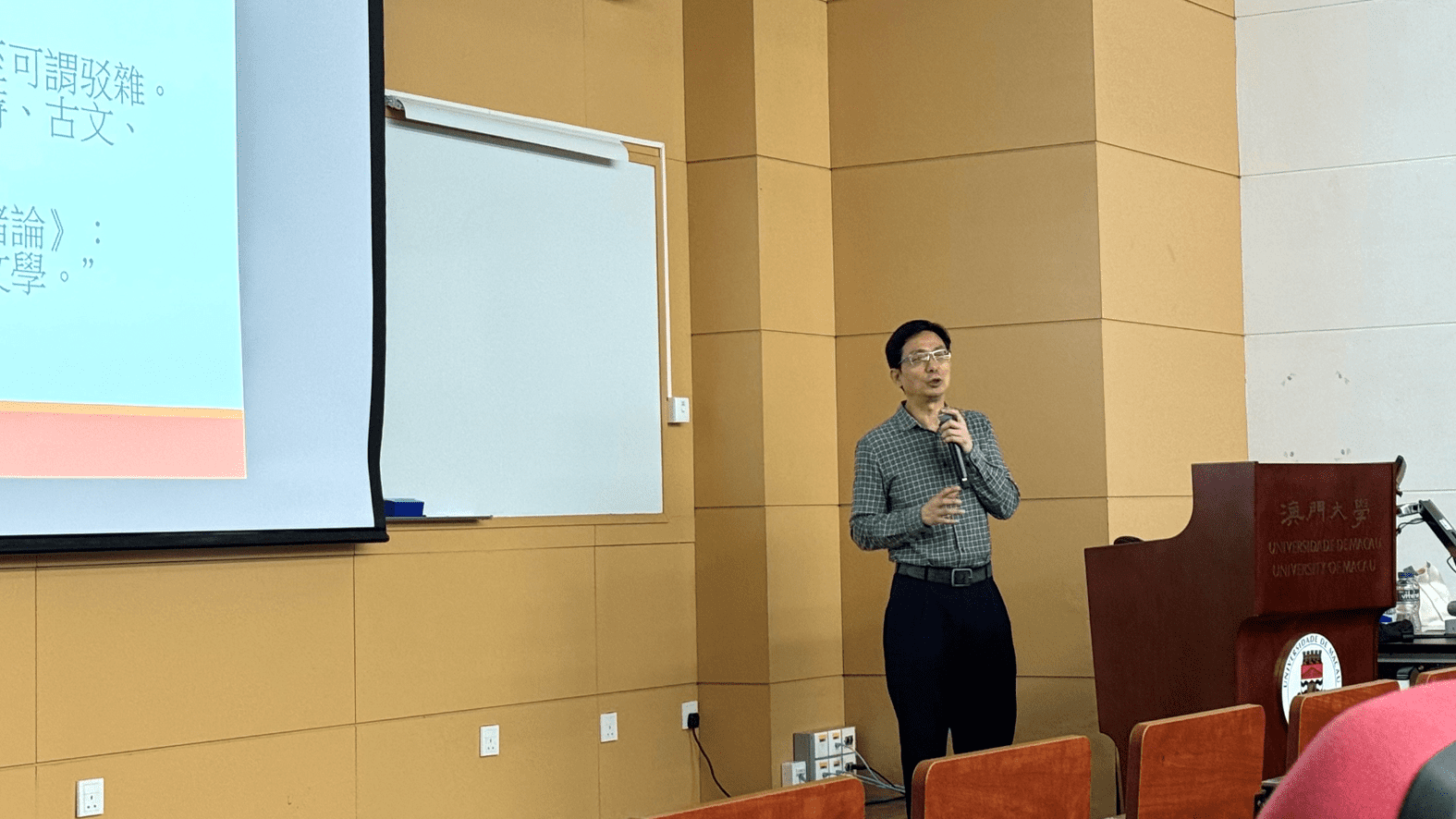
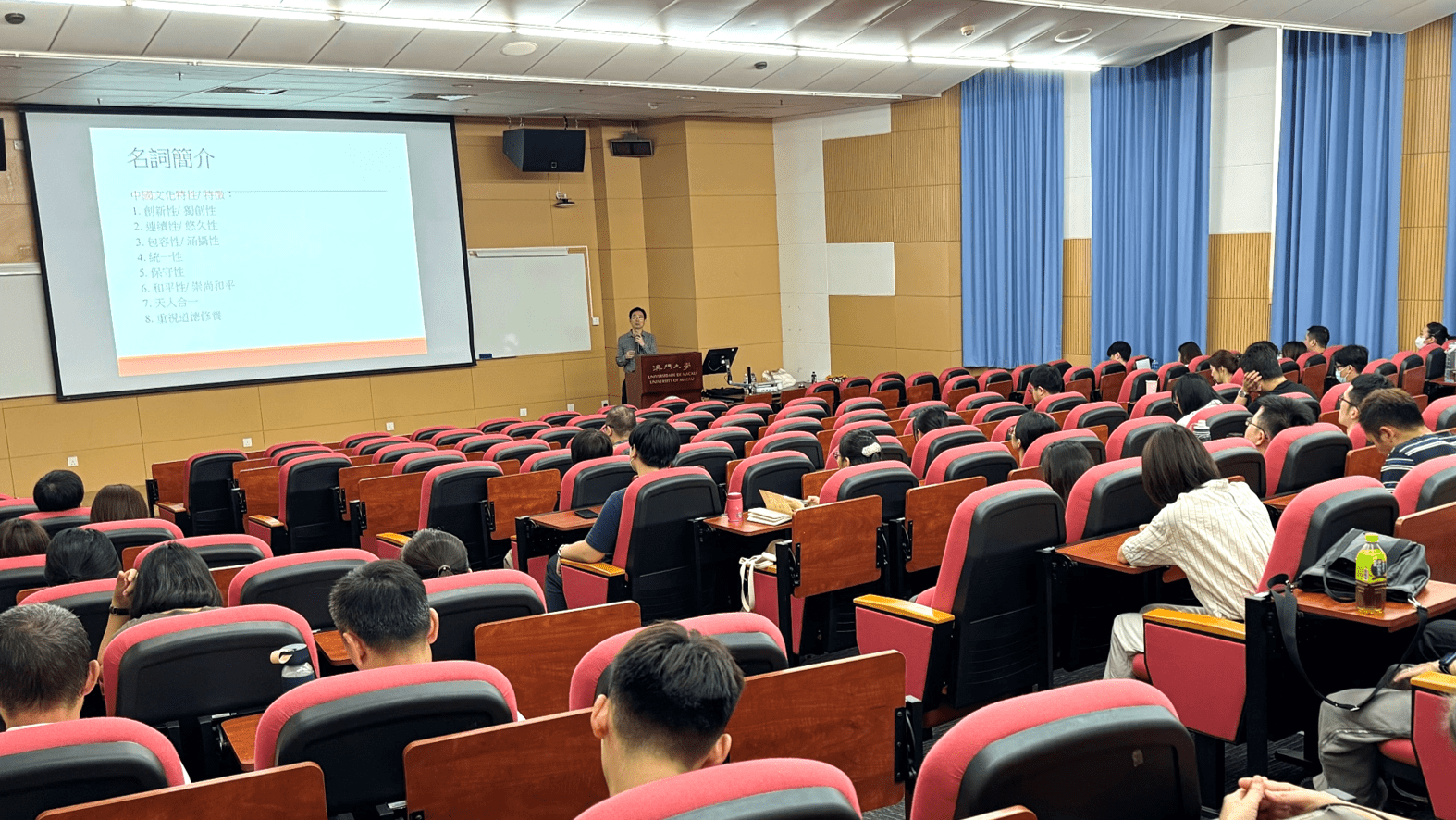
Significance of the “Outline Development Plan for the Guangdong-Hong Kong-Macao Greater Bay Area” to Moderate Economic Diversification in Macao
《粵港澳大灣區發展規劃綱要》對澳門經濟適度多元的意義
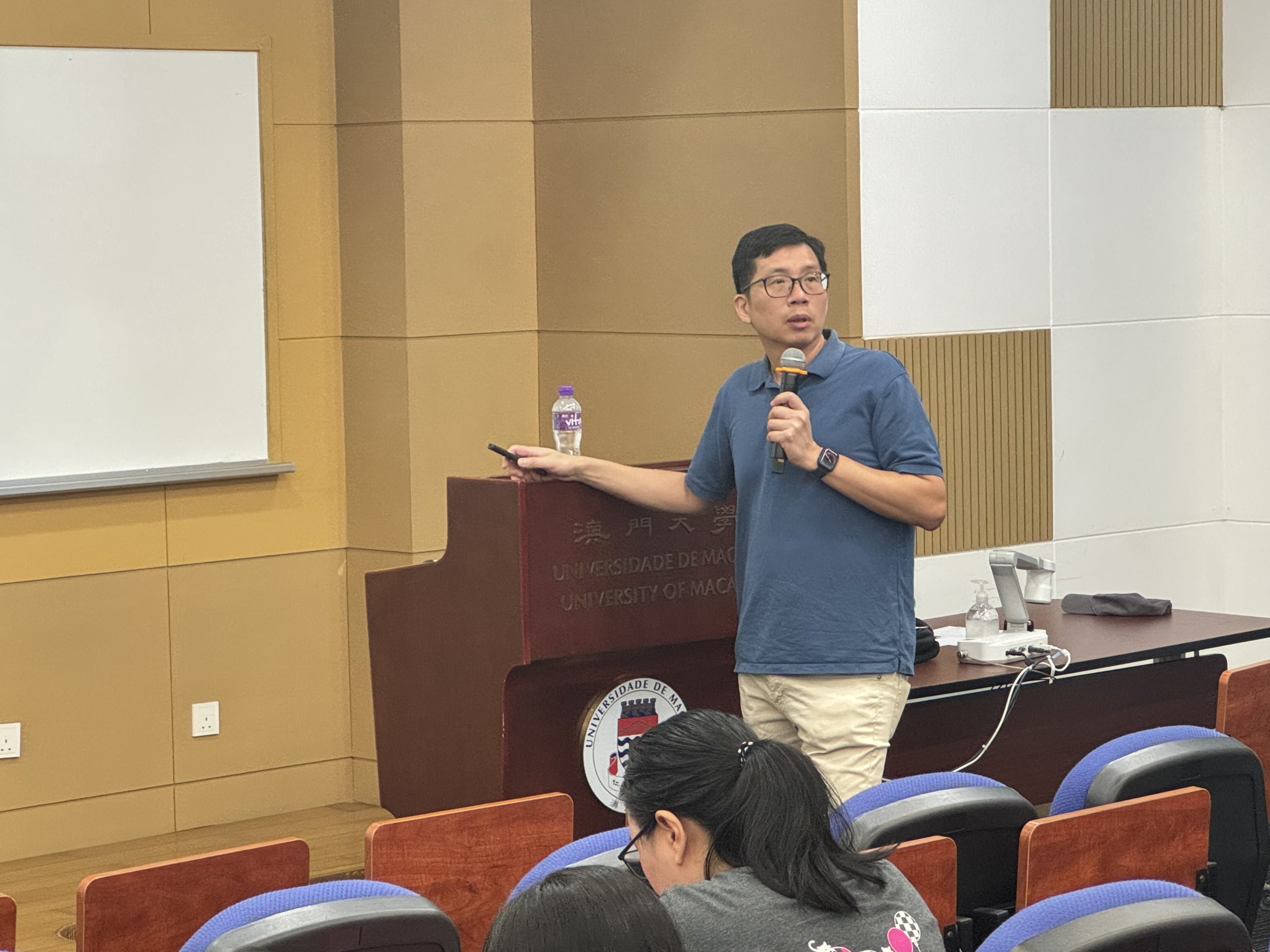

In order to enhance UM staff members’ understanding of the nation, the Human Resources Section of the Office of Administration organized in-house training courses on “Smart Cities and Data Governance in the Chinese Mainland”, “Chinese Literature and Culture in Modern Transition” and “Significance of the “Outline Development Plan for the Guangdong-Hong Kong-Macao Greater Bay Area” to Moderate Economic Diversification in Macao” on 3 July, 5 July, and 4 September 2024 respectively.
Prof. SHUI Bing, Associate Director of the Institute of Advanced Studies in Humanities and Social Sciences, Head of the Public Administration Training Centre and Professor of Faculty of Law (FLL), shared the considerations of data governance during the construction of smart cities’ infrastructures in Chinese Mainland, as well as the ways for legally protecting the safety of data transferring. Over 80 colleagues attended the training.
Prof. YEUNG Siu Kwai, Associate Professor of Faculty of Education (FED), introduced the major changes in modern Chinese literature and culture, as well as the profound impact of literary and cultural transformations on China. Nearly 80 colleagues attended the training.
Prof. LEI Chun Kwok, Associate Professor of Faculty of Business Administration (FBA), introduced the background, requirement, positioning, development goals, strategies implementation and significance of the “Outline Development Plan for the Guangdong-Hong Kong-Macao Greater Bay Area”. Over 110 colleagues attended the training.
The University hopes that these training courses can deepen staff members’ knowledge on the development of smart cities and data governance in Mainland China, enhance their understanding on Chinese literature and culture, and provide them with insight into the economic development of Macao under the influence of the Greater Bay Area.
Best regards,
Human Resources Section
Office of Administration
為增強大學教職員對國家的認識,行政部人力資源處於2024年7月3日、7月5日和9月4日分別舉辦了「內地智慧城市與數據治理」、「中國文學與文化的現代變遷」及「《粵港澳大灣區發展規劃綱要》對澳門經濟適度多元的意義」內部培訓課程。
人文社科高等研究院副院長、公共行政培訓中心主任及法學院教授稅兵教授分享了內地智慧城市建設當中的數據治理考量,以及如何讓民眾充分享受數據便利的同時享有法律的保障。超過80名員工參與此培訓。
教育學院副教授楊兆貴教授介紹了近代中國文學與文化的重大轉變,以及文學與文化轉變對中國的深遠影響。近80名員工參與此培訓。
工商管理學院副教授李振國教授介紹了《綱要》的背景、總體要求、定位、發展目標、相關策略的落實及意義。超過110名員工參與此培訓。
大學希望透過上述培訓課程加深員工對內地智慧城市與數據治理的認識,提升其對中國文學與文化的瞭解,並讓他們更深入認識在粵港澳大灣區影響下的澳門經濟發展。
行政部 人力資源處 謹啟